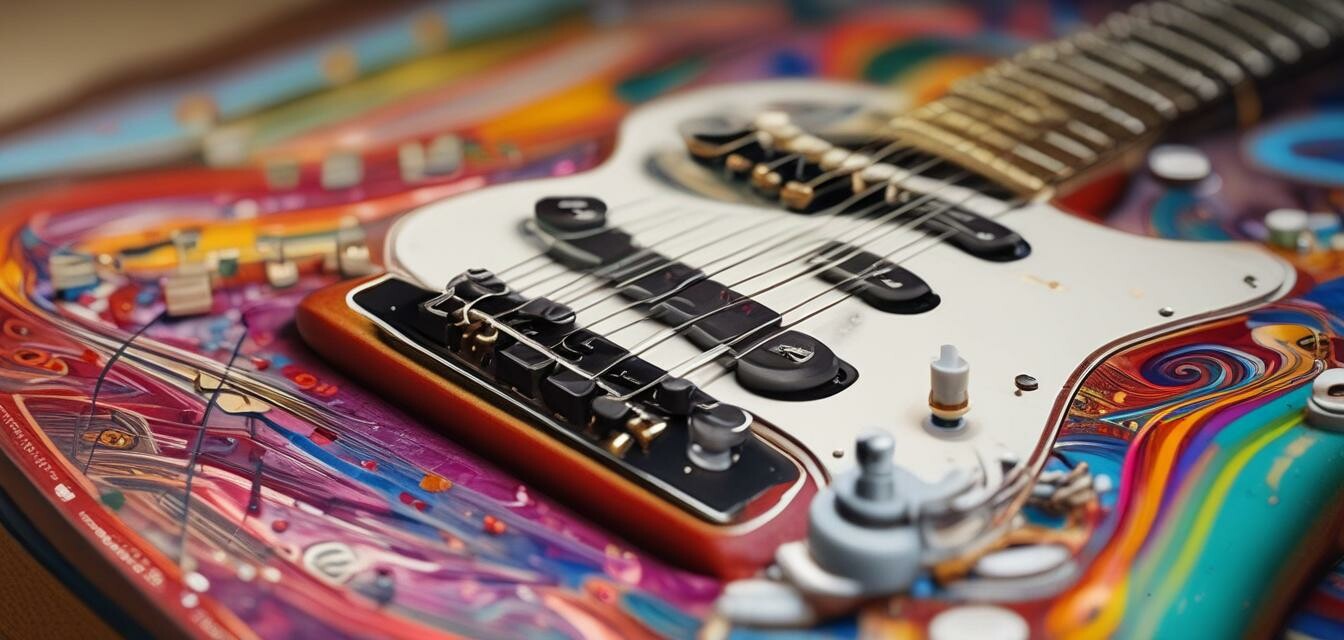
Essential Techniques for Improvising on a Fender
Key Takeaways
- Understanding scales and modes is crucial for improvisation.
- Practice creative methods to enhance your improvisation skills.
- Incorporate various techniques to develop your unique sound.
- Regular practice and experimentation are key to becoming proficient.
- Explore different genres to expand your improvisation repertoire.
If you own a Fender guitar, you hold the key to unlocking a world of musical expression. Improvisation is not only a vital skill for any guitarist; it's also one of the most enjoyable aspects of playing. In this article, we will delve into essential techniques for improvising on your Fender, focusing on scales, modes, and creative practice methods that can transform your playing.
Understanding Scales and Modes
Scales and modes are the building blocks of improvisation. They provide the notes you play when improvising, allowing you to create melodious lines and unique sounds. Here are some of the most popular scales and modes you should be familiar with:
| Scale/Mode | Characteristics | Common Contexts |
|---|---|---|
| Major Scale | Bright and happy sound | Pop, Rock, Country |
| Minor Scale | Sad or somber tone | Blues, Rock, Metal |
| Pentatonic Scale | Simple, easy to play | Rock, Blues, Folk |
| Dorian Mode | Groovy, jazzy feel | Jazz, Funk, Rock |
| Mixolydian Mode | Bluesy, upbeat sound | Rock, Funk, Country |
Practicing Scales
One of the best ways to get comfortable with scales is through structured practice. Here are some effective methods:
- Use a metronome: Keep your timing accurate as you play through scales.
- Play arpeggios: Break down chords into individual notes for a different perspective.
- Transpose scales: Practice moving up and down the neck to develop finger strength and muscle memory.
- Learn scales in different positions: This helps you find new sounds quickly.
Creative Practice Methods
Beyond just learning scales and modes, incorporating various creative methods can greatly enhance your improvisation skills. Here are some techniques to consider:
- Jam along with backing tracks: Find tracks in different styles to practice your scales.
- Record your sessions: Listening back can reveal strengths and areas for improvement.
- Experiment with effects: Use effects like echoes and distortions to find unique sounds with your Fender guitar.
- Collaborate with other musicians: Playing with others can open up new ideas and enhance your improvisational skills.
Incorporating Various Techniques
To stand out as an improviser, develop your sound with distinct techniques:
- Slide: Smoothly transition between notes for expressive playing.
- Hammer-on and Pull-off: Add flair to your playing by connecting notes fluidly.
- Whammy bar: Create dramatic pitch changes for more emotional performances.
- Fingerstyle: Explore different finger patterns to produce unique melodies.
Expanding Your Genre Knowledge
Diving into multiple genres will give you a broader vocabulary as an improviser. Consider exploring:
| Genre | Improvisational Focus | Recommended Listening |
|---|---|---|
| Jazz | Complex chords and scales | Explore jazz masters |
| Blues | Emotional expression and simplicity | Learn about the blues scale |
| Rock | Melodic solos and catchy hooks | Focus on rock guitarists |
| Folk | Storytelling and melody | Discover folk techniques |
Regular Practice and Experimentation
Finally, the most crucial aspect of improving your improvisation skills is consistency. Setting aside time daily to practice and explore new ideas will yield the best results. Here’s a quick overview of your practice plan:
Beginner's Tips
- Start with short 20-minute sessions.
- Focus on one scale at a time.
- Keep a journal of your improvisational ideas.
- Gradually increase your session time as you improve.
Pros
- Improvisation enhances creativity.
- Playing different genres broadens skillset.
- Regular practice leads to noticeable improvement.
Cons
- Improvisation can feel overwhelming at first.
- Requires time to develop proficiency.
- May lead to frustrations during practice.
Conclusion
Improvisation on your Fender guitar is an essential skill that not only enhances your playing but also deepens your connection with music. By mastering scales and modes, adopting creative practice methods, and consistently exploring new techniques, you can elevate your improvisational abilities to new heights. Remember, the journey of becoming a proficient improviser is ongoing and filled with joy and discovery.